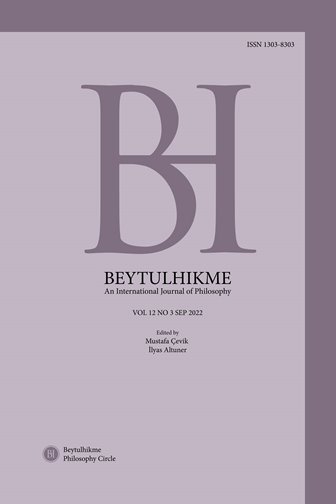Author :
Abstract
Güney Koreli yönetmen Bong Joon-ho'nun Parazit filmi (2019), hem görsel ve hem de düşünsel olarak oldukça önemli bir yerde durmaktadır. Film, sınıflar arası gelir dağılımının gittikçe arttığı zengin bir ülkede sınıf kavramını sorunsallaştırır. Sosyal sınıfların yaşamlarına ve onların diğer sınıflarla ilişkilerine kamerasını çevirir. Marksist teorinin sayısız kez analiz ettiği sınıf, sınıf içi veya sınıflar arası ilişkinin bilinmeyen yönlerine ışık tutar. Bong Joon -ho "sınıf” kavramını imgeler ile sunarak felsefe ile sinemanın kesişmesini sağlar. “Her zaman aynı kalan bir sınıftan bahsedilebilir mi?” “Sınıfın yerine artık başka bir durumla mı karşı karşıyayız?” gibi sorular ile kesişmesini somutlaştırır. Çok genel ve çok tartışılan bu meseleyi yönetmen, daha farklı bir biçimde ve yeniden ele alır. Post endüstriyel bir dünyada sınıf sorunu, felsefi kavramların ve tartışmaların yerine imgelerin gücü ile sunulur. “Sınıf nedir?” Ve “sınıflar arası ilişki nasıldır?” Sadece bir cevap ile geçiştirilecek sorular olmadığı gibi sadece bir yön ile ele alınacak sorunlar da değildir. Bu makalede, Parasit filmi aracılığıyla günümüzde sınıf içi ve sınıflar arası ilişkinin nasıl bir biçim aldığı üzerine odaklanılmıştır.
Keywords
Abstract
South Korean director Bong Joon-ho’s film Parasite (2019) which is very strong visually, also stands at a quite important place intellectually. The film problematizes the “concept of class" in a wealthy country where the income distribution between classes is increasing. It focuses the camera on the lives of social classes, and the relations with other classes. It sheds light to the unknown sides of social class; inter class and intra class relations that were analyzed by the Marxist theory several times. By presenting the "class” concept with images, Bong Joon-ho provides the intersection of philosophy and cinema. “Is it possible to talk about a class that always remains the same?”, “Are there other issues to consider other than class now?” The director deals with this very general and much discussed issue in a different way and again. The class problem in a post-industrial world is presented via the power of images rather than philosophical concepts and discussions. The questions “what is a class?” and “how is the relation between classes?” are not questions that can be passed off by a single answer and at the same time they cannot be handled through a single aspect. In this paper, it will be focused on thinking about the new form that interclass and interclass relations have received today.
Keywords
- Adorno, T. W. (2005). Minima Moralia: Reflections on a Damaged Life, Trans- lated by Edmund Jephcott, New York, NY:Verso.
- Adorno, T. W. (2004). Negative Dialectics, (E.B.Ashton, Trans.) London and New York:Routledge.
- Adorno, T. W. (1991). The Culture Industry, edited by J.M.Bernsteined, Lon- don and New York: Routledge
- Benjamin, W. (2008). The Work of Art In The Age of Mechanical Reproduction. London: Penguin Books.
- Horkheimer, M. & Adorno, T. W. (2002). Dialectic of Enlightenment. Trans- lated by Edmund Jephcott, Stanford: Stanford University Press.
- Horkheimer, M. (2004), Eclipse of Reason. New York, NY:Continuum
- Horkheimer, M. (2002). Critical Theory: Selected Essays, Translated by Mat- thew j. O’connell and Others, New York: Continuum Publishing Company
- Jones, E. (2020, February 02), “Parasite-Our-film” JACOBIN, https://www.jacobinmag.com/2020/02/parasite-bong-joon-ho-academy-awards
- Jameson, F. (2011). Representing Capital: A Commentary On Volume One. New York, NY: Verso.
- Jameson, F., (2005). Archaeologies of the Future: The Desire Called Utopia and Other Science Fictions. New York, NY: Verso. Ji-youn, J. (2009). Bong Joon-ho. (Colin A. Mouat, Trans). Seoul: Seoul Selection Press.
- Klein, C. (2008). "Why American Studies Needs to Think about Korean Cinema, or, Transnational Genres in The Films of Bong Joonho." American Quarterly 60(4), 871-898.
- Paisley Livingston, (2009). Cinema, Philosophy, Bergman: On Film as Philo- sophy NY: Oxford University Press,
- O’Falt, C. (2019. October 29), “Building the ‘Parasite’ House: How Bong Joon Ho and His Team Made the Year’s Best Set.” IndieWire. https://www.indiewire.com/2019/10/parasite-house-set-design-bongjoon-ho-1202185829/
- Ollman, B. (2003). Dance of the Dialectic: Steps in Marx's Method. Urbana and Chicago: University of Illinois Press
- Paiella, G. (2019, October 8). “Parasite Director Bong Joon-ho on the Art of Class Warfare”, GQ, https://www.gq.com/story/parasite-directorbong-joon-ho-interview
- Simmel, G. (1997). Simmel on Culture: Selected Writings (Vol. 903). (Edited by David Frisby& Mike Featherstone, London: Sage Publications.
- Sims, David, (2019, October 15). “How Bong Joon-ho Invented the Weird World of Parasite.” “What story could I tell with just two houses?” The Atlantic, https://www.theatlantic.com/entertainment/archive/2019/10/bong-joon-ho-parasite-interview/600007/
- Taubin, A. (2019, September-October Issue), “A House Divided”, Film Comment, https://www.filmcomment.com/article/a-house-divided/
- Williams, R., & Williams, R. H. (1977). Marxism and Literature (Vol. 392). Oxford: Oxford Paperbacks.
- Öz: Güney Koreli yönetmen Bong Joon-ho'nun Parazit filmi (2019), hem görsel
